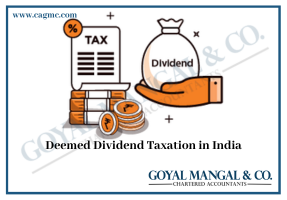| Table of Content |
Entrepreneurship is a process of designing and running a new business with new ideas; often initially it is a small business but after than entrepreneur by its ability skill takes that business at next level. The people who create the businesses are called entrepreneurs. We all are having some live examples such brilliant entrepreneurs such as Bill gates, rattan Tata, Narayana Murthy, Dhirubhai Ambani and many more.
Entrepreneurship has been described as the “capacity and willingness to develop, organize and manage a business venture along with any of its risks to make a profit.”

Who is entrepreneur?
The entrepreneur is someone who has the ability and desire to establish, an entity and made it successful in a startup venture with new ideas or new concept along with risk entitled to it, to make best possible profits.
The entrepreneurs are source of new ideas or innovator that bring new ideas in the market by replacing old with a new invention and help in overall development of Economy.
It can be classified into small or home business to multinational companies. In economics, the profits that an entrepreneur makes are with a combination of land, natural resources, labour and capital.
Types of Entrepreneurship?
Entrepreneurship classified as following:
- Small Business Entrepreneurship: These businesses are such as hairdresser, grocery store, travel agent, consultant, carpenter, plumber, electrician and etc. These people run their own on very small level .they do not run their business on hug level or not having the industry and factories, they just have small shop or business and make profits form that. They fund their business by taking small business loans from banks or from friends and family.
- Scalable Startup Entrepreneurship: This start-up entrepreneur starts a business knowing that their vision can change the world. They attract investors who think and encourage people who think out of the box. The research focuses on a scalable business and experimental models so, hire the best and the brightest employees. They require more venture capital to fuel and back their project or business.
- Large Company Entrepreneurship: These huge companies have defined lifecycle. Most of these companies grow and sustain by offering new and innovative products that revolve around their main products. The change in technology, customer preferences, new competition, etc., builds pressure for large companies to create an innovative product and sell it to the new set of customers in the new market. To cope up with the rapid technological changes, the existing organization either buys innovation enterprises or attempts to construct the product internally.
- Social Entrepreneurship: This type of entrepreneurship focuses on producing product and services that resolve the social needs and problems. Their only motto and goal are to work for society and not make any profits. Social entrepreneurship is an approach by individuals, groups of individuals, start-up companies or entrepreneurs, in which they develop, fund and implement solutions to social, cultural, or environmental issues. This concept may be applied to a wide range of organizations, which vary in size, aims, and beliefs. Social entrepreneurship benefit society and work for their responsibility towards society.
Role of Entrepreneurship
Entrepreneurship plays a vital role in the economic growth and influence economic growth of the country and improve standard of living of the people of the country. Entrepreneurship is one of the most important inputs in the economic development of a country. The entrepreneur acts as a trigger head to give spark to economic activities by their entrepreneurial decisions. They look for opportunities, identify them and grab them mainly for economic benefits and growth.
Here are the top 7 important roles an entrepreneur plays in the economic development of a country.
- Wealth Creation and Sharing: By establishing the business entity, entrepreneurs invest their own resources and attract capital (in the form of debt, equity, etc.) from investors, lenders and the public. This mobilizes public wealth and allows people to benefit from the success of entrepreneurs and growing businesses. This kind of pooled capital that results in wealth creation and distribution is one of the basic imperatives and goals of economic.
- Create Jobs: Entrepreneurs are by nature and definition job creators, as opposed to job seekers. The simple translation is that when you become an entrepreneur, there is one less job seeker in the economy, and then you provide employment for multiple other job seekers. This kind of job creation by new and existing businesses is again is one of the basic goals of economic development. This is why the Govt. of India has launched initiatives such as StartupIndia to promote and support new startups, and also others like the Make in India initiative to attract foreign companies and their FDI into the Indian economy. All this in turn creates a lot of job opportunities, and is helping in augmenting our standards to a global level.
- Balanced Regional Development: Entrepreneurs setting up new businesses and industrial units help with regional development by locating in less developed and backward areas. The growth of industries and business in these areas leads to infrastructure improvements like better roads and rail links, airports, stable electricity and water supply, schools, hospitals, shopping malls and other public and private services that would not otherwise be available.
Every new business that locates in a less developed area will create both direct and indirect jobs, helping lift regional economies in many different ways. The combined spending by all the new employees of the new businesses and the supporting jobs in other businesses adds to the local and regional economic output. Both central and state governments promote this kind of regional development by providing registered MSME businesses various benefits and concessions. - GDP and Per Capita Income: The entrepreneurs contribute a great deal to the GDP. Entrepreneurship is concerned with the production of goods and services in the economy. Thus, it directly affects employment, revenue generation, and foreign exchange. Therefore, it affects the whole economy in general. India’s MSME sector. MSMEs contribution towards 50% of the country’s GDP in the next five years from 29% currently and provide jobs to 15 crore people. This growth in GDP and per capita income is again one of the essential goals of economic development.
- Standard of Living: Entrepreneurship increases the standard of living of people and helps in development of economy. Entrepreneurs again play a key role in increasing the standard of living in a community. They do this not just by creating jobs, but also by developing and adopting innovations that lead to improvements in the quality of life of their employees, customers, and other stakeholders in the entrepreneurship. For example, automation that reduces production costs and enables faster production will make a business unit more productive, while also providing its customers with the same goods at lower prices.
- Exports: Any growing business will eventually want to get started with exports to expand their business to foreign markets. This is an important ingredient of economic development since it provides access to bigger markets, and leads to currency inflows and access to the latest cutting-edge technologies and processes being used in more developed foreign markets. Another key benefit is that this expansion that leads to more stable business revenue during economic downturns in the local economy.
- Community Development: Economic development doesn’t always translate into community development. Community development requires infrastructure for education and training, healthcare, and other public services. For example, you need highly educated and skilled workers in a community to attract new businesses. If there are educational institutions, technical training schools and internship opportunities, that will help build the pool of educated and skilled workers.







